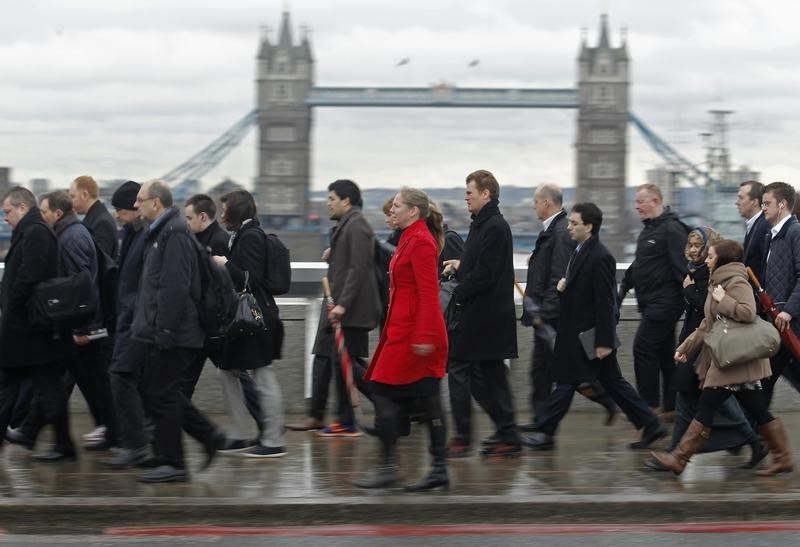Investing.com - Consumer price inflation in the U.K. rose to a one-year high in January, but concerns over deflationary pressures remained, official data showed on Tuesday.
In a report, the U.K. Office for National Statistics said the rate of consumer price inflation rose by a seasonally adjusted 0.3% last month, matching forecasts and up from 0.2% in December.
The main contributors to the rise in the rate were motor fuels, and to a lesser extent food, alcoholic beverages and clothing. Air fare prices partially offset the rise in the rate, falling by more than they did a year ago.
Month-over-month, consumer price inflation fell 0.8% in January, worse than forecasts for a decline of 0.7% and following a gain of 0.1% in the prior month.
Bank of England Governor Mark Carney will now have to write an open letter to the Chancellor of the Exchequer, George Osborne, as inflation is more than a percentage point below the central bank's target of 2.0%.
BoE officials have said recently they expect inflation to hover around zero for much of this year, before accelerating back to target during 2016 and 2017.
Core CPI, which excludes food, energy, alcohol, and tobacco costs rose at a seasonally adjusted rate of 1.2% last month, below forecasts for 1.3% and down from 1.4% in December.
The retail price index increased 1.3% in January, missing expectations for 1.4% and up from 1.2% a month earlier.
The data also showed that the house price index rose 6.7% in December, trailing forecasts for a gain of 7.9% and following a 7.7% increase in November.
GBP/USD fell to 1.4474 from around 1.4484 ahead of the release of the data, while EUR/GBP was at 0.7722 from 0.7719 earlier.
Meanwhile, European stock markets were mostly higher. London’s FTSE 100 rose 0.35%, the EURO STOXX 50 tacked on 0.25%, France's CAC 40 advanced 0.5%, while Germany's DAX shed 0.1%.
